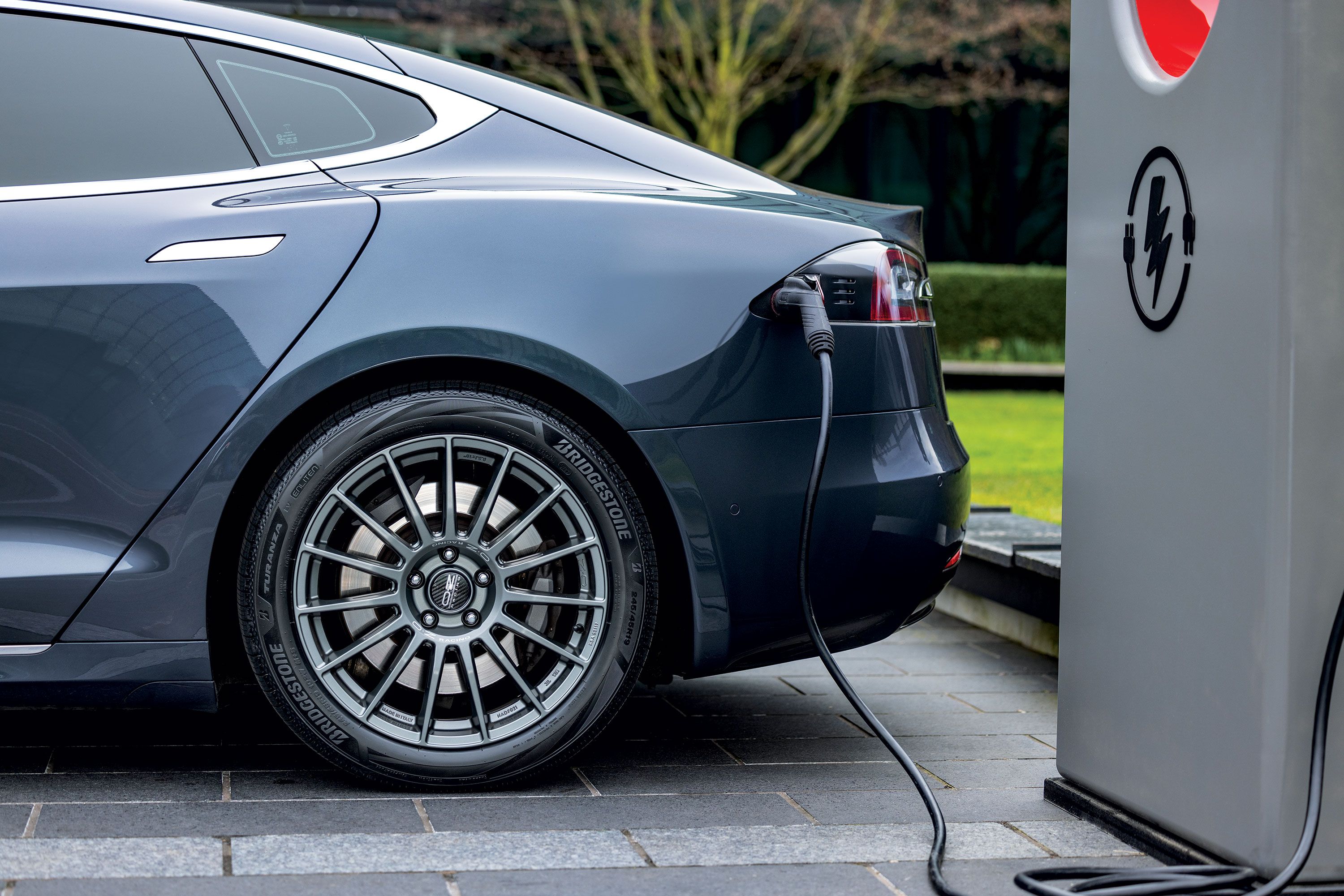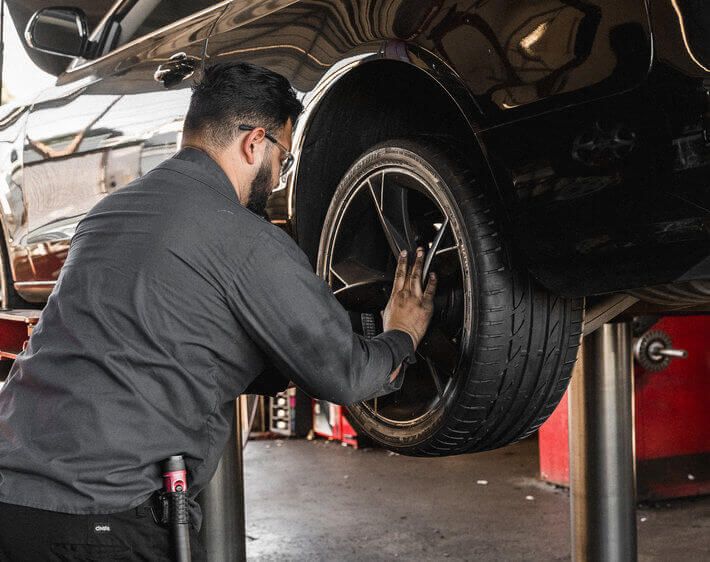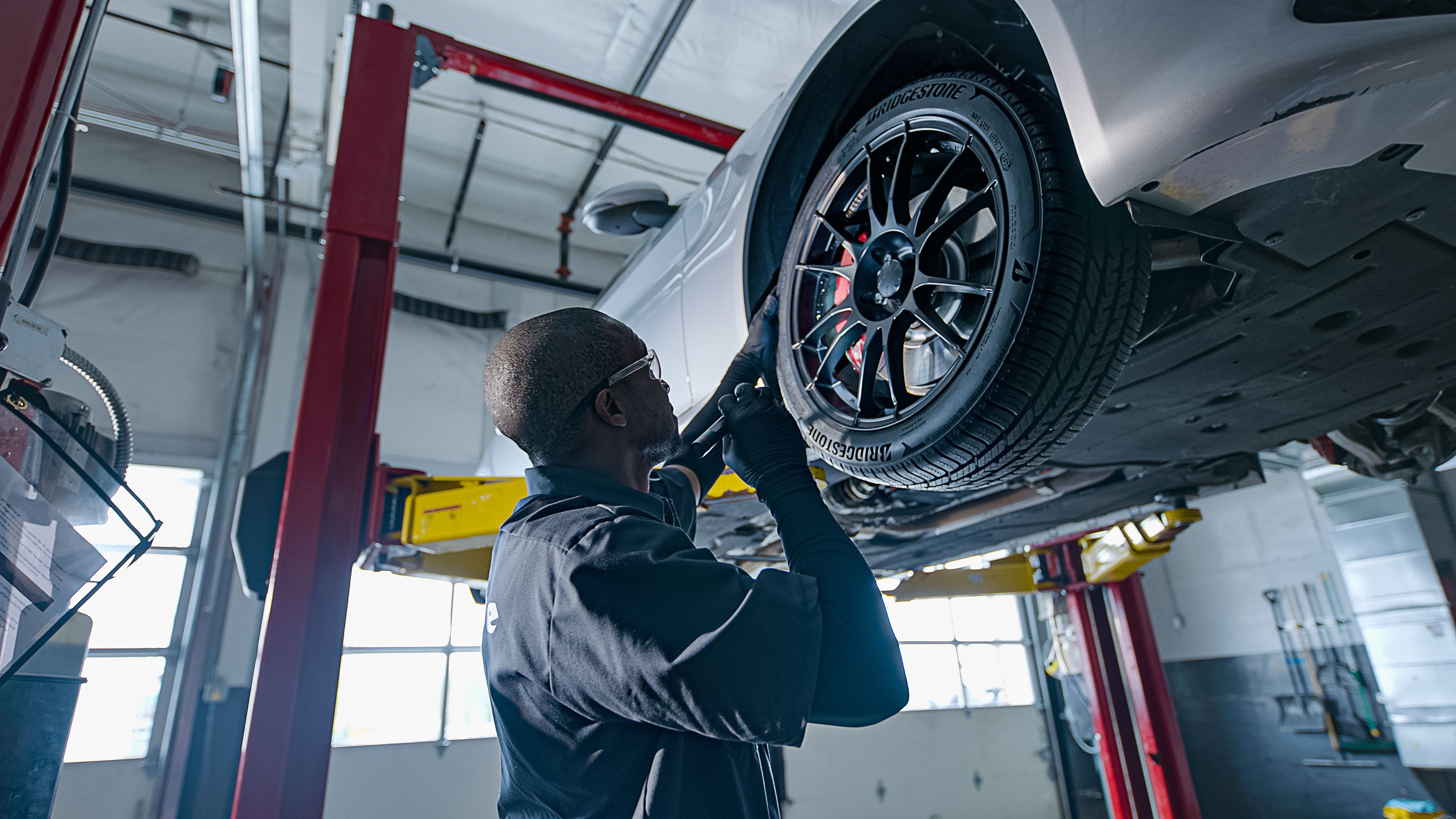
Do EV Tires Wear Out Faster?
Are electric vehicles tougher on tires? Learn if EVs go through tires quicker than gas vehicles and what you can do to help prolong the life of your EV tires.
Read More
Use a tire pressure gauge to check the current air pressure inside your tires. Optionally, most gas stations and auto service centers have public tire pressure gauges available for free or for a small fee. Not sure how to use a tire pressure gauge? Just follow these steps:
Keeping the correct air pressure in your tires can help your tires last longer, your car handle better and safer, and can even help you save money on fuel. You might be surprised to know that tires lose pressure daily. In warm weather, a tire can lose one or two psi of air per month. In cold weather, tires can lose even more. That’s why it’s recommended that you check air pressure every other time you stop to fill up your gas tank. Keep in mind that many vehicles have different optimal tire pressures on the front and rear axle. Make sure to check the pressure in your spare tire as well.
Look for your vehicle’s recommended tire pressure in your owner’s manual. Correct tire pressure should also be listed on a sticker placed either on the vehicle's door jamb, doorpost, glove box door, or fuel door.
Want a quicker way to find which tire pressure to use? Enter your car’s make and model at the top of the page to view a PSI tire pressure chart with the recommended tire pressure for standard-sized tires on your vehicle.
All cars manufactured after 2007 come equipped with a tire pressure monitoring system (TPMS) to notify drivers when their tire pressure is below recommended driving levels. With the TPMS, one of these symbols will light up on the dashboard when any tire is 25% under-inflated. If the TPMS symbol is blinking when the vehicle is started, there is an issue with the TPMS system. If the TPMS light is solid when the vehicle is started, that indicates low tire pressure.
Psi, or pounds per square inch, is commonly used to measure the pressure of gasses and liquids. One psi is the pressure resulting from a force of one pound force applied to an area of one square inch. In the context of vehicles, psi is the measurement used for tire inflation pressure.
To keep your vehicle running smoothly, all tires should be kept inflated to their optimal psi. In fact, maintaining proper tire pressure is an essential part of overall car maintenance. If you have a tire pressure gauge, it’s easy to check the current psi of the tire yourself. We recommend checking your tires at least once a month. To get the most accurate reading, tire pressure should be measured when the tires are “cold”, so wait until the car has been parked for a few hours before checking.
Over-inflated
Under-inflated
Tires will naturally deflate over time, generally losing about 1 psi every month. Even if you have a Tire Pressure Monitoring System (TPMS), make it a habit to use a tire pressure gauge to check the psi of your tires once a month just to be sure. Tire pressure changes can be a tell-tale sign of other issues, but it can also be an easy fix if you stay diligent and catch problems sooner rather than later.

Are electric vehicles tougher on tires? Learn if EVs go through tires quicker than gas vehicles and what you can do to help prolong the life of your EV tires.

Wondering when to rotate tires? Read this for everything you need to know about tire rotation and rotation patterns, from Firestone Complete Auto Care.

Notice vibrations, tire pressure loss, or performance issues? Your car may need a tire rotation. Learn what it is, why it’s vital, and what signs to watch for.